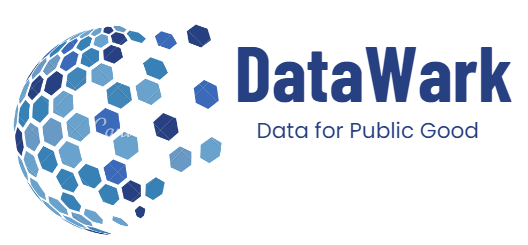In today’s hyper-connected, data-driven world, the ability to effectively share, distribute, and utilize data has become a critical factor in decision-making processes across various sectors. Whether it’s shaping public policy, driving business innovation, or addressing societal challenges like health disparities and income inequality, data impartation—meaning the intentional transfer of knowledge from data—is key to unlocking the transformative potential of data.
But what exactly does data impartation entail, and why is it so important?
Understanding Data Impartation
At its core, data impartation refers to the practice of sharing data insights in a way that is not only accessible but also actionable. It’s about more than just providing raw data; it involves translating that information into a format that decision-makers, organizations, and communities can understand and use effectively. This requires the breakdown of complex datasets into digestible insights, highlighting key trends, relationships, and predictions that can guide decision-making.
For example, at Datawark, we specialize in transforming data into actionable insights, helping policymakers and businesses use local-level data to address issues such as housing, health disparities, and environmental challenges. This isn’t just about making data available—it’s about making it relevant and usable for those who need it most.
The Role of Data Impartation in Decision-Making
- Empowering Communities and Policymakers For communities, access to insightful data can significantly impact their well-being. By providing communities with local data insights, such as neighborhood income inequality or environmental health risks, they can advocate for change and work with policymakers to develop targeted interventions. Data impartation bridges the gap between raw numbers and real-world action, enabling grassroots movements to push for policy changes based on concrete evidence.Policymakers, on the other hand, are often inundated with massive amounts of data but lack the tools or expertise to distill meaningful insights. When properly imparted, data can provide them with the necessary information to create effective policies. For example, insights from data can highlight where to allocate funds for affordable housing or how transportation improvements can increase job access in underserved areas.
- Supporting Business Innovation For businesses, data impartation offers a roadmap for optimizing operations, understanding market trends, and enhancing profitability. Companies that harness the power of data to forecast market shifts, customer preferences, and operational inefficiencies can make smarter decisions that give them a competitive edge. At Datawark, we help businesses do just that by using advanced analytics tools to uncover actionable insights from both public and private data.
- Addressing Complex Societal Issues Some of the most pressing societal challenges—such as health disparities, environmental inequality, and poverty—are deeply rooted in systemic factors that often go unnoticed without proper data analysis. Data impartation brings these hidden trends to light. For example, by analyzing health data, we can identify patterns in maternal mortality rates and help inform interventions that lead to healthier birth outcomes, aligning with initiatives like our own desire to decrease maternal mortalities and support women through doula services.
How Data Impartation is Evolving
As technology continues to advance, so too does the way we impart data. Tools like artificial intelligence (AI) and machine learning (ML) have revolutionized data analysis, enabling organizations to generate predictive insights from vast datasets more efficiently than ever before. However, for these insights to drive meaningful action, they must be communicated effectively.
At Datawark, we focus on not only harnessing AI to derive insights but also making sure that the results are accessible to our partners—whether they are community groups, policymakers, or businesses. By developing easy-to-understand reports and visualizations, we ensure that data does not just sit on a server, but actively informs and shapes the future.
Conclusion
In a world where data is abundant but often underutilized, the power of data impartation cannot be overstated. It’s the key to turning information into impact, enabling communities, policymakers, and businesses to make decisions that improve lives, foster innovation, and address some of society’s most pressing challenges.
At Datawark, we are committed to bridging the gap between data and action. Whether through our work in health, housing, or environmental justice, our goal is to empower stakeholders with the insights they need to make informed decisions. In the end, the true value of data lies not just in its collection but in how it is shared, understood, and applied

Leave a Reply